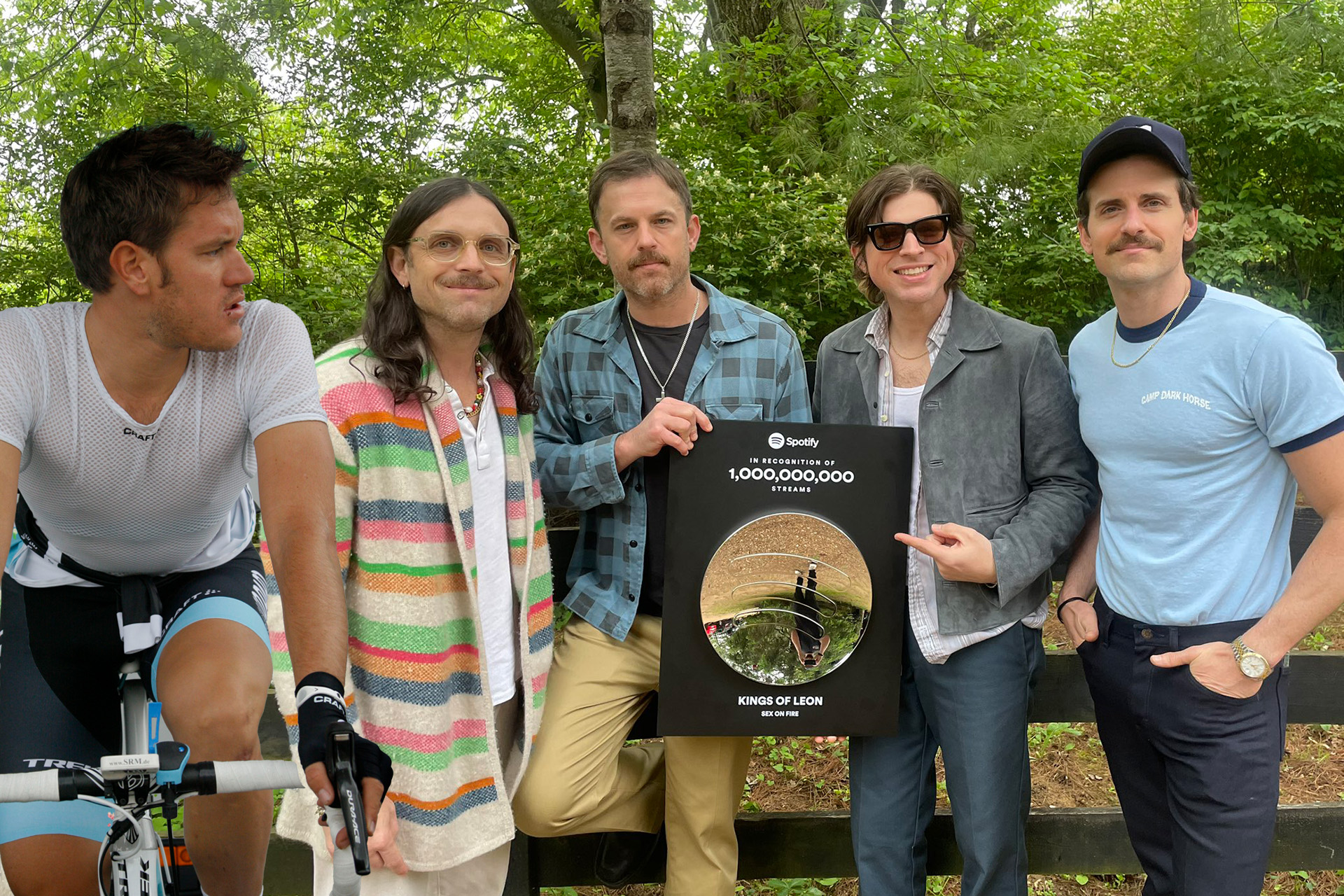Every Grand Tour is made up of choices big and small – from riders’ strategies, to the spare bikes they ride, to the sponsors of the promotional caravan, to the Pantone shade of the jerseys – and there are mysteries (and answers) to be found in virtually all of them. But sometimes, a question surfaces above the hubbub, demanding deeper investigation.
The particular question we’re looking into together, you and I – why they play the 2008 Kings of Leon song ‘Sex on Fire’ so often at the Giro d’Italia – carries such an imperative. How can one not immediately want to grapple with that?
This question first came to our attention via an email from Escape Collective member Alison Neidt Toonen, but it’s been occupying space in the back of peoples’ minds beyond just that, from ancient Reddit threads to our current-day workplace Slack. Maybe you’ve noticed it too, and have wondered the same thing. There are layers to the question: it is not so much ‘why do they play Sex on Fire all the time at the Giro?’ (although it kinda is that, too), but why this song specifically, and why here, and why now? What message are the Giro’s organisers trying to send with this very particular and dated choice, and how does ‘Sex on Fire’, specifically, help them transmit that message in the extremely sex-forsaken context of an elite bike race? Is there a fun story behind it? Is it, actually, kind of a touching tale?
Well, let’s find out.
This starts in 2008, I suppose, with the release of the song in question. You’ve probably heard it: it was a pretty inescapable cultural phenomenon of its era, the lead single from the fourth album by the vaguely churchy, generically scruffy, extremely related mainstream US rock band Kings of Leon. To refresh your memory, we begin with a chugga chugga of guitar before the drums crash in, and then Caleb Followill’s weirdly strangled vocals.
“Lay where you’re laying, don’t make a sound,” he begins. “I know they’re watching, they’re watching / All the commotion, the kiddie like play / Has people talking, talking.” Then comes the knockout punch of the chorus, his vocals soaring over the churning tones of three other Followills thrashing away. “Yooooooooou … Your sex is on fire.”
If that doesn’t scream ‘cycling’ to you, that’s probably fair enough: it’s not entirely clear to me what it does scream, although it has notably been described as “the apex, death and afterlife of landfill indie all in one go”. The hook itself is kinda nonsensical – Wikipedia would have you believe that the band “never intended the song to be named ‘Sex on Fire’ and that it was not intended to be about sexuality”; alternative titles they workshopped were allegedly ‘Socks on Fire’, ‘Snatch on Fire’, and ‘Cocks on Fire’, which are bold choices if nothing else. But although the take-home message of the song is ambiguous, its mainstream appeal was not: it was a sleeper hit, sitting in the UK singles chart for a combined 90 weeks, and crossing over to the continent with 60 weeks in the German chart. All of which means that in 2011, years after it first saw the light of day, it still carried some cultural currency.
I should probably flag here that we’re about to cross from rock history into cycling history, and things are about to get a little heavy. Because this is when ‘Sex on Fire’ becomes a part of the Giro d’Italia’s DNA – a moment we can narrow down to a day and a specific location: May 9, 2011; Reggio Emilio, the start of the third stage of that year’s race. The stage began like any other day for the riders of the race: the pre-race briefings, the rev-up routines. On the Leopard-Trek bus, ‘Sex on Fire’ blasted out: the team would “sing along at full volume, pure release. To get you ready,” remembers Tom Stamsnijder. It was the Belgian sprinter Wouter Weylandt’s favourite song, and this song was a last adrenaline boost before the riders left the bus and saddled up for the day ahead.
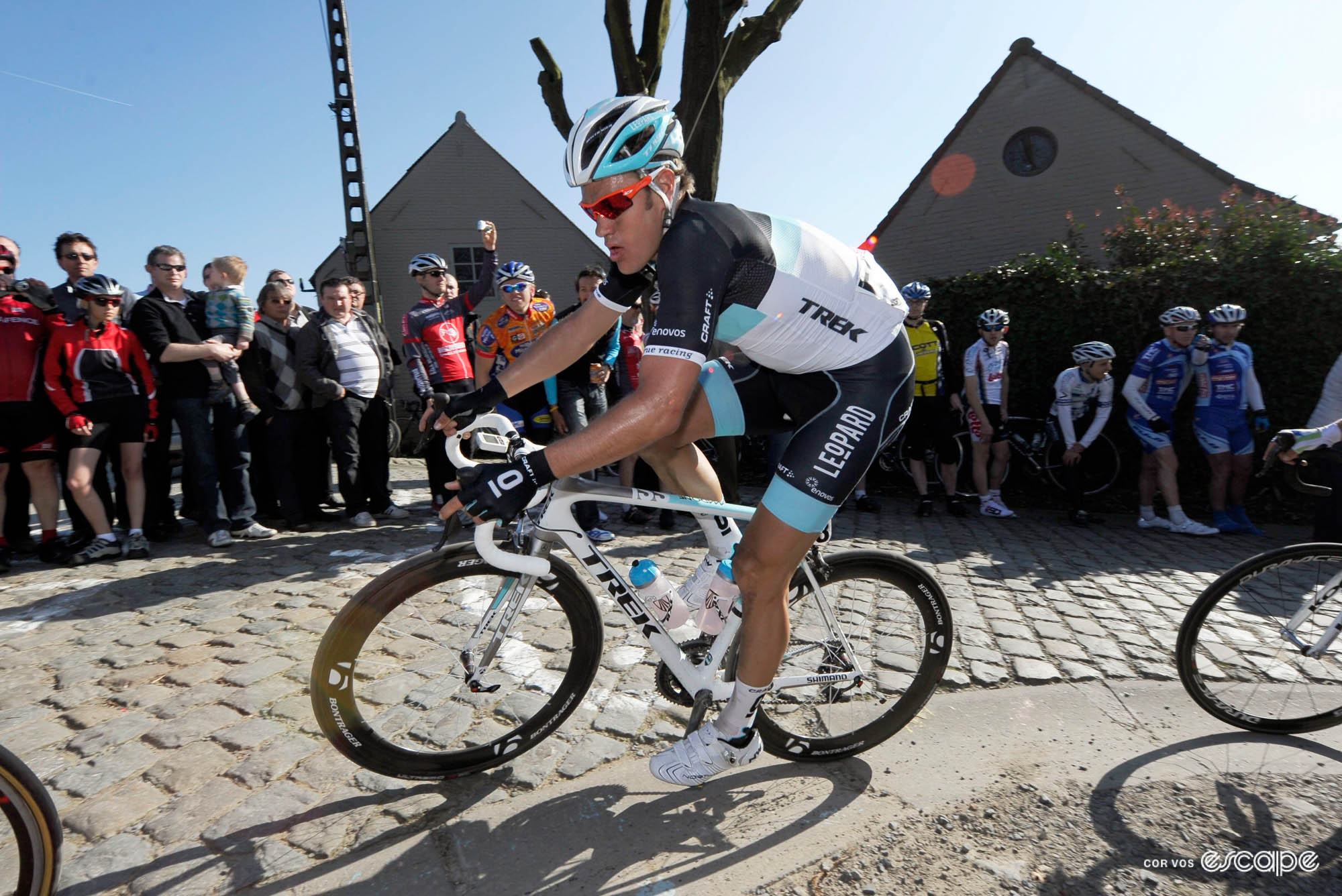
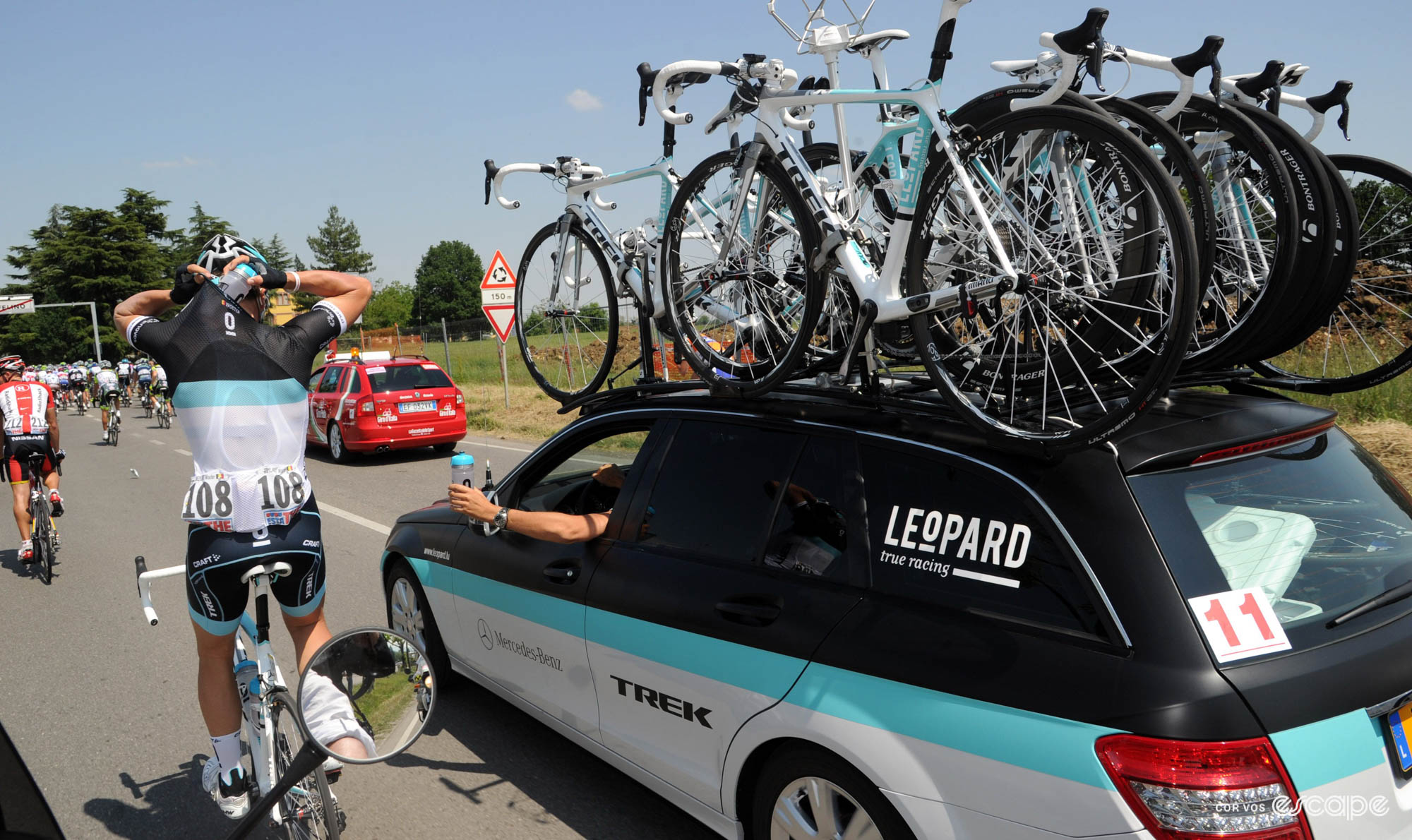
Weylandt had won the third stage a year earlier, but this route was a challenging one for the big sprinter – a lumpy 173 km from Reggio Emilia to Rapallo, with a flat finish. Nonetheless, he was eager to try for a follow-up, and when the race was blowing up on the Passo del Bocco, Weylandt stretched to follow. His teammate Stamsnijder warned Weylandt not to take risks on the descent, but he “dived into a gap. I couldn’t follow him at all, but in the distance I saw that he was almost joining the peloton. I looked up and suddenly saw a bicycle flying. It turned out to be Wouter’s bicycle. It lay there in such a way that I knew: this is over.”
At around 80 km/h, Weylandt’s foot had hit a concrete guard rail, sending him catapulting across the road and into a wall. Within 20 seconds, the race doctor was by his side, but nothing could be done to bring Weylandt back: the doctor later said that “he was already and clearly dead upon impact. I had never seen such a thing before, such a sudden death.” The Giro d’Italia was plunged into mourning, and Weylandt’s name has passed into cycling history as a reminder of the terrible risks that pro cyclists face during their business day.
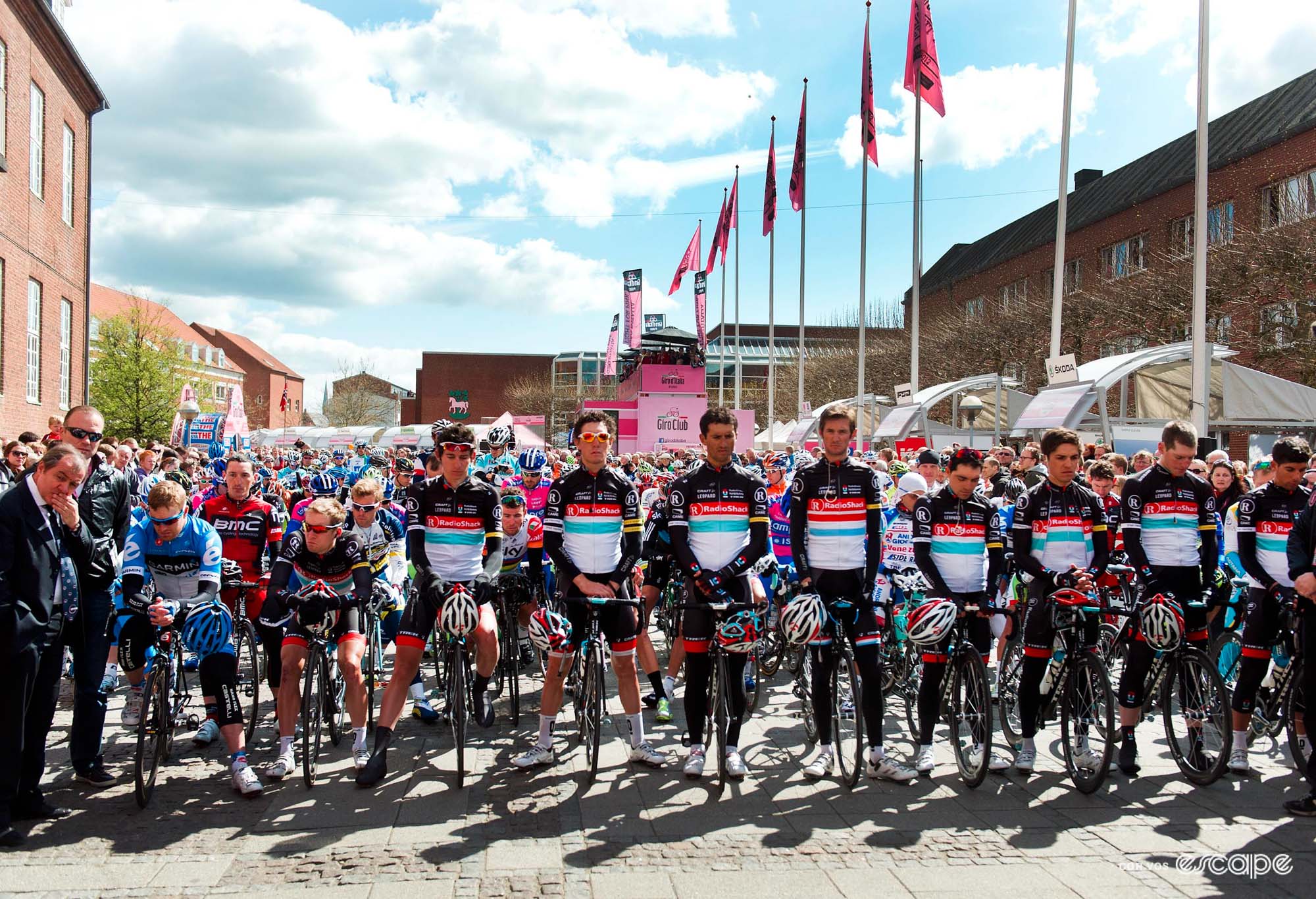
A year later, ‘Sex on Fire’ made its first big appearance at the Giro d’Italia, on stage 3 in Horsens, Denmark. Before the stage start, the Radioshack-Leopard team and Weylandt’s best friend, Tyler Farrar (Garmin-Sharp), stood somberly at the front of the peloton. Weylandt’s sister, Elke – who is still involved in cycling as operations manager of Lidl-Trek – said a few words. Some balloons with her brother’s face on them were released, and – as the peloton observed a minute’s silence – Caleb Followill’s voice rang out across the town square.
The dark of the alley, the breaking of day/
The head while I’m driving, I’m driving/
Soft lips are open, knuckles are pale/
Feels like you’re dying, you’re dying/
You, your sex is on fire/
Consumed with what’s to transpire
Life goes on, for pro cyclists and for their sport and even for the Kings of Leon. After a few years as one of the biggest bands in the world, they’ve dropped off a little: they’ve just released their eighth studio album, with a title (‘Can We Please Have Fun?’) hinting, perhaps, at the fact that even being a rock star is work sometimes. They’ve also faced their own shifting relationship with their biggest song, with frontman Caleb recently admitting that he didn’t even like it much way back then: “I didn’t want it on the album,” he said. “But I knew it had potential.” He was right: 1.4 billion Spotify streams and 533 million Youtube views of potential.
After a bit of connecting the dots between ‘Sex on Fire’ and the Giro d’Italia and from there to Wouter Weylandt, I had a hunch that this may have been why viewers of the Giro d’Italia were still being presented with this particular musical time capsule more than 15 years after it first burst out of speakers, but I wanted a definitive answer. Perhaps it was merely an artefact of an old, un-evolving playlist that had been copy/pasted from year to year to year; perhaps someone at the Giro just really, really loved old rock hits and lacked the English language skills to realise that ‘Sex on Fire’ was a strange phrase to blast out at every stage finish.
A few days after I sent what has not been my first strange enquiry to the kind people in the Giro’s organisation, I finally got the answer: this is, I was told, a “tribute from our DJ Max Lietta. He found out this was Wouter’s favourite song and has decided to play it at the finish.” From Max Lietta’s Instagram, there’s even behind-the-scenes footage of one such moment taking shape:
Thirteen years on from the terrible day that Wouter Weylandt died, he has not been forgotten. His race number – 108 – has been permanently retired at the Giro d’Italia. On stage 3 of this year’s race, Tim Merlier (Soudal-QuickStep) took the stage win, crossing the line with his hands raised in the shape of a W. In post-race comments, he spoke about his memories of Weylandt as a fan: “I remember the moment of his death,” Merlier said. “I was watching the broadcast with a friend. That hit like a bomb. I have not forgotten him, because I was a fan of Weylandt. I also dedicated my first victory to him .”
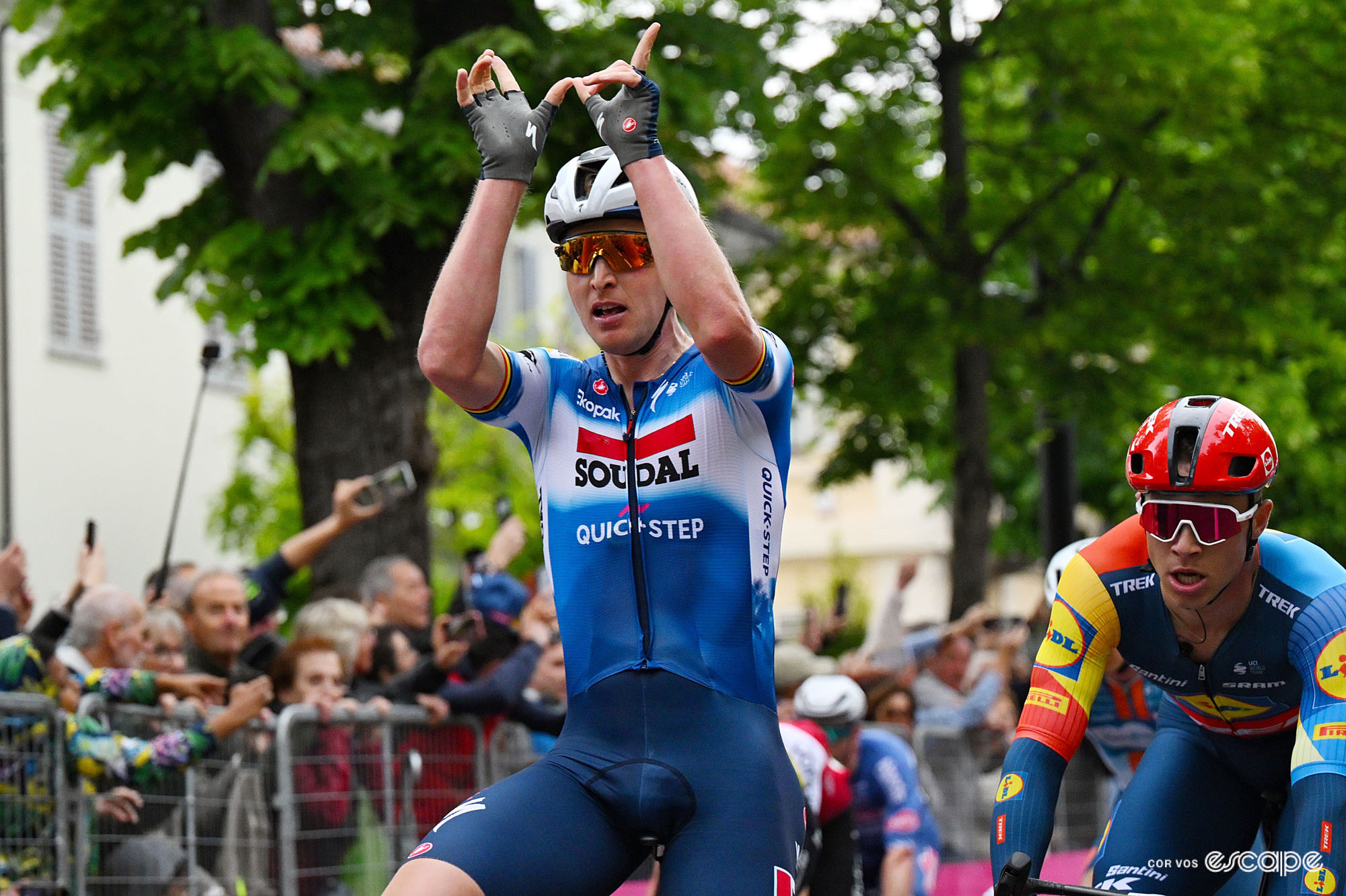
Merlier’s stage 3 victory salute was a prominent tribute, while the Giro’s regular musical recognition of Weylandt’s life is a stealthy one that most people haven’t realised was even happening. But there’s a loveliness to it because of its simplicity and unannounced nature. We remember those we loved and lost in moments big and small; sometimes we speak about it, and sometimes the memory just sits with us through a glimpse, a photo, a chorus.
Listening back to ‘Sex on Fire’s surge and churn now, all these years after its release, I don’t think it’s aged into the pantheon of great rock songs. Like most pieces of music, it is a product of its age, created and consumed, played less and less as new beloved songs come along, and finally, it is forgotten. But in how it conjures a specific place and time, ‘Sex on Fire’ is the perfect piece of music for this moment. ‘Sex on Fire’ is 2008, and it is 2011. It is a musical memory, trapped in amber. It is the last favourite song that Wouter Weylandt would ever get the privilege of having.
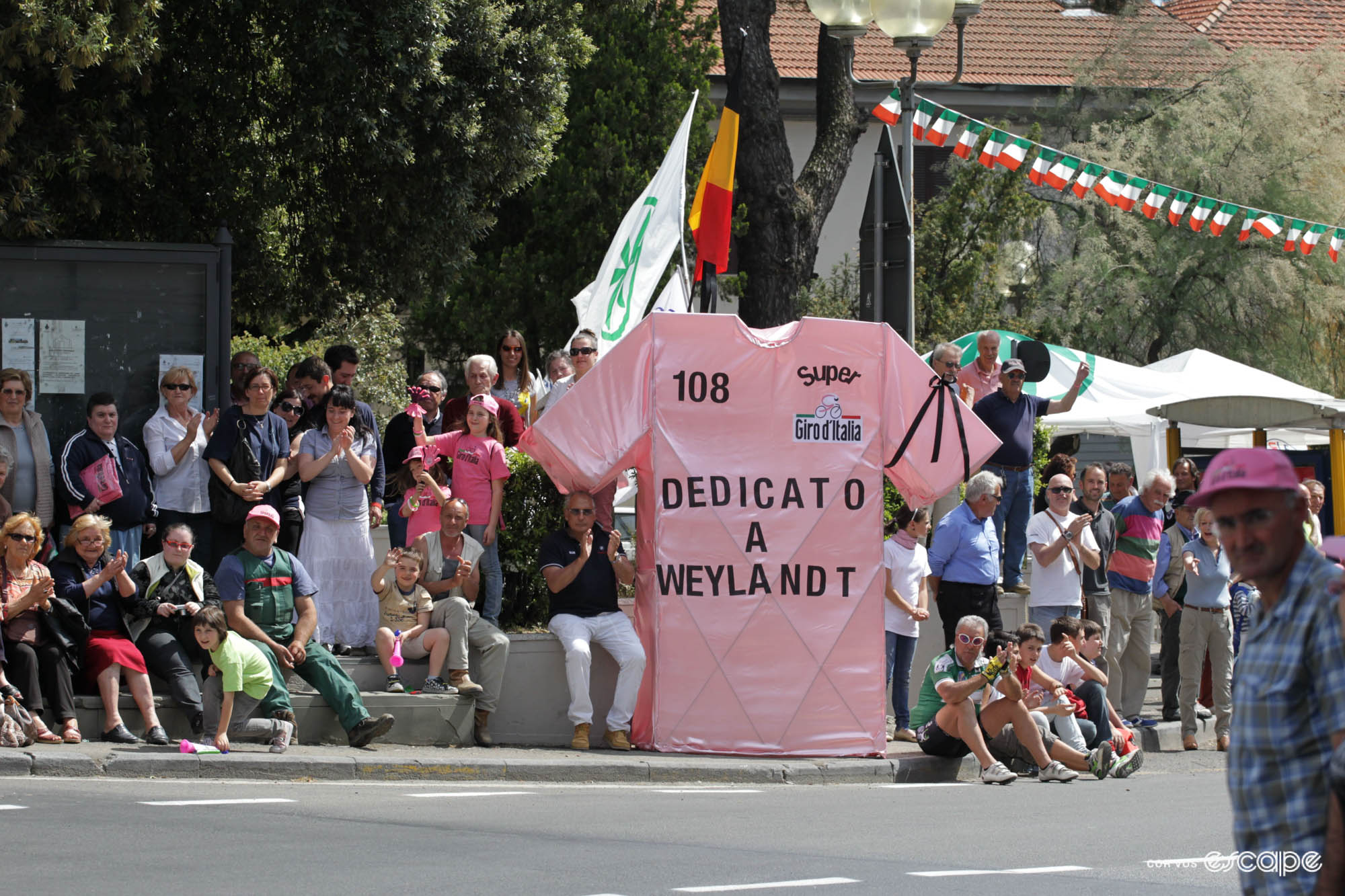
What did you think of this story?
